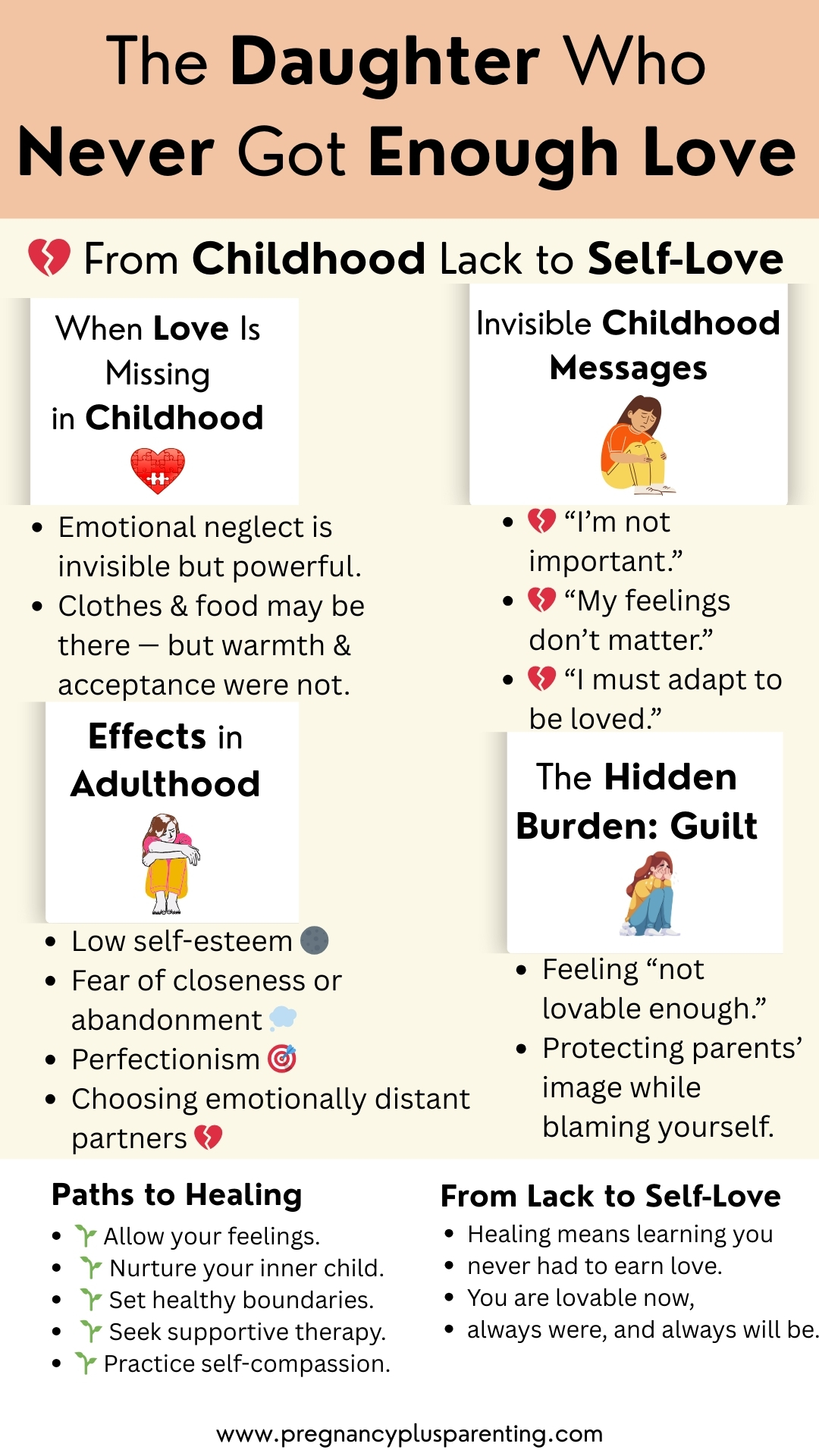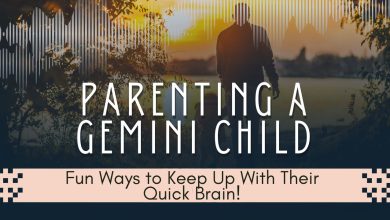The Daughter Who Never Got Enough Love
There are stories that don’t begin with loud drama, but quietly—so quietly that they often go unnoticed for years. The story of a daughter who never got enough love is one such example.
From the outside, everything seemed normal: a home, clothes, food, maybe even vacations together. But beneath the surface, something crucial was missing—the warmth, the closeness, the unconditional acceptance that a child needs to feel safe and valuable.
This invisible emptiness is no small thing. It shapes one’s self-image, influences every relationship, and often reverberates into adulthood. Those who weren’t loved enough as children grow up with a deep inner lack – and spend their lives trying to fill it.
When love is missing, although everything is “there”
Many people believe that a lack of love can only be found in situations of obvious neglect – where violence, poverty or open rejection prevail.
But emotional neglect is often more subtle. It doesn’t show up in empty refrigerators or torn clothes, but in the lack of glances, hugs, and attentive conversations.
The daughter who never received enough love may never have heard words like “I’m proud of you .” Her feelings were dismissed— “You’re exaggerating” or “It’s not that bad.”
Sometimes the mother or father was physically present but emotionally unavailable. The child learned early on: I have to manage on my own.
The invisible messages of childhood
A child who does not receive enough love subliminally absorbs messages that become deeply embedded within:
“I’m not important.”
“My feelings are bothering me.”
“I have to adapt to be liked.”
These phrases aren’t always spoken, but they are lived. The daughter senses that affection is rare—and that she might only receive a little attention if she’s well-behaved, inconspicuous, or particularly high-achieving.

The search for recognition
Over the years, this lack develops into a strong need for validation.
The daughter learns to earn love – through good grades, helpfulness, conformity, or later through excessive care in relationships.
But even when praise comes, it often feels empty. Deep down, there’s the conviction: “It’s never enough.” This leads to a vicious cycle of over-adaptation, perfectionism, and fear of rejection.
Effects in adulthood
Emotional deprivation in childhood is not without consequences. Many daughters who never received enough love struggle with:
- Low self-esteem: They often feel less worthy than others and have difficulty representing their needs.
- Fear of closeness and loss: You long for connection, but at the same time fear being abandoned.
- Perfectionism: To gain recognition, they try to do everything “right.”
- Relationship patterns that hurt: They often end up with partners who are emotionally unavailable – familiar from childhood.
These patterns are not a conscious decision, but learned survival strategies.
The invisible burden: guilt
A daughter who never received enough love often feels a deep, unfounded guilt.
She believes there is something wrong with her—that she was the one who was too much, too loud, too sensitive, or not lovable enough.
These feelings of guilt are particularly difficult because she often wants to protect the image of her own parents. She thinks, “They did their best.” And yes—from her perspective, they often did. But that doesn’t change the experience of lack.
The inner child and the unsatisfied hunger
Inside, the little girl still lives, waiting for the hug that never came. This inner emptiness is often covered up with external success, recognition, or constant activity – but it remains.
Some daughters unconsciously seek parental surrogates in friendships or relationships. Others try to avoid the pain by appearing particularly independent— “I don’t need anyone.” But behind this facade often lies a fear of being disappointed again.
Ways of healing
Healing begins with the realization: It wasn’t your fault.
No child has to earn love. If parents were emotionally unavailable, it was due to their own limitations, hurts, or personality patterns—not to the child’s worth.
Possible steps for healing include:
- Allowing feelings: Feeling the pain, the sadness and perhaps even the anger is an important step.
- Nurturing the inner child : Giving yourself today what was missing then – care, understanding, comfort.
- Learning healthy boundaries: Accepting only what is respectful and appreciative in relationships.
- Therapeutic support: A safe space to understand your own history and develop new patterns.
- Practice self-compassion: no longer treat yourself with harshness, but with understanding.
Overcoming the fear of rejection
Many adult daughters from love-deprived childhoods avoid conflict or do not say what they really think – for fear of being rejected.
Healing also means learning that rejection does not diminish one’s worth.
It’s a process in which she allows herself, step by step, to be authentic – even if that means that not everyone likes her.
Creating new experiences
Old wounds heal more easily when new, healing experiences arise.
These can be stable friendships, supportive partnerships or communities where appreciation is a given.
Every encounter in which she feels seen and respected writes a new story – one in which she is no longer the girl who has to fight for love.
From lack to self-love
The daughter who never received enough love can learn to give herself the love that was once denied to her.
This doesn’t mean that the past becomes unimportant or that the pain disappears—but it loses its power.
Self-love is not just a trendy buzzword, but the decision to treat yourself like someone worthy of being loved – without conditions.
Conclusion: Rewriting your own story
A childhood without enough love leaves its mark. But it doesn’t have to determine your entire life.
The daughter who never received enough love can now be the woman who strengthens her own roots, respects herself, and chooses relationships in which she does not have to fight for recognition.
The path isn’t easy—but it’s possible. And with every step, the realization grows: I’ve always been lovable. I am lovable today. And I always will be.







